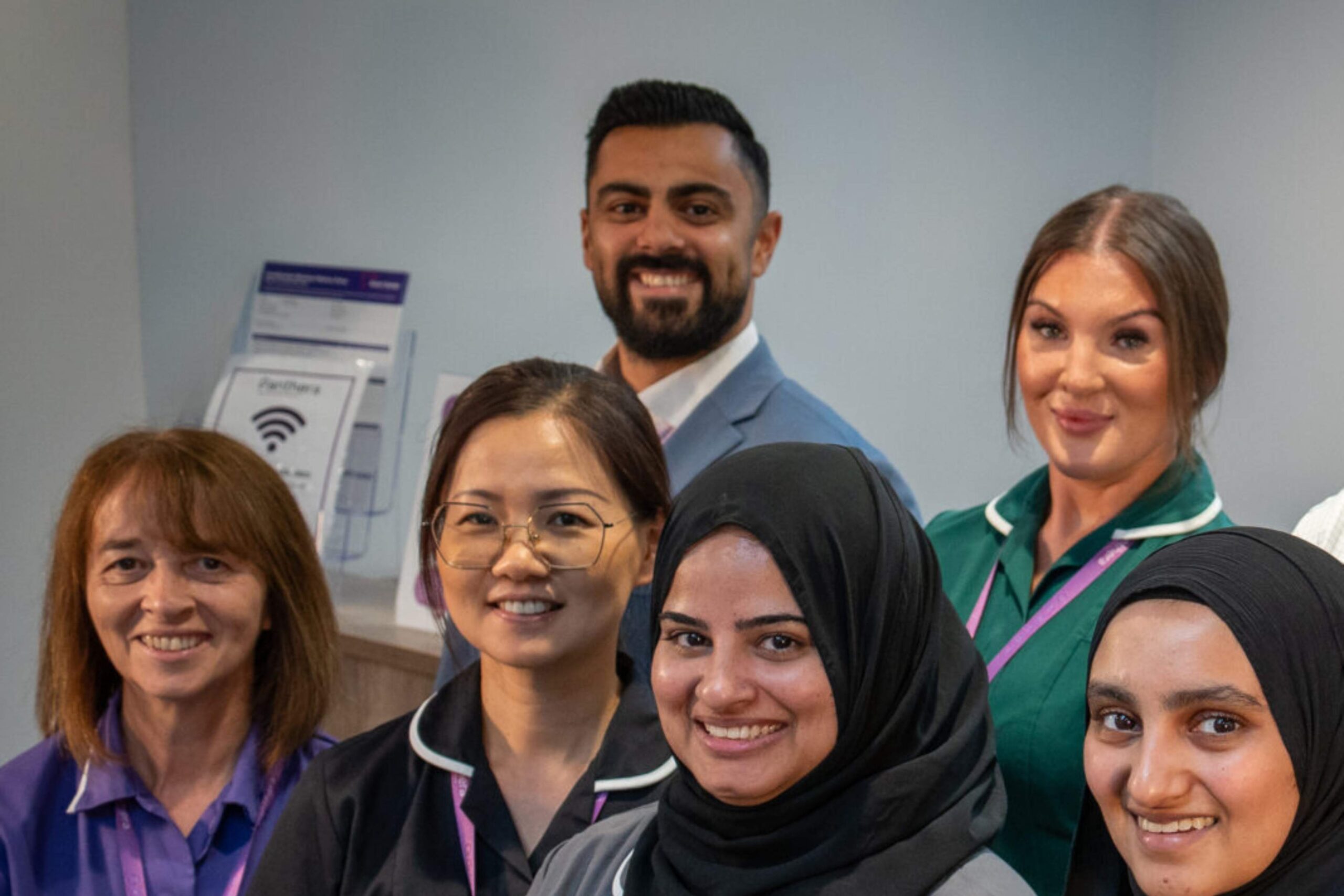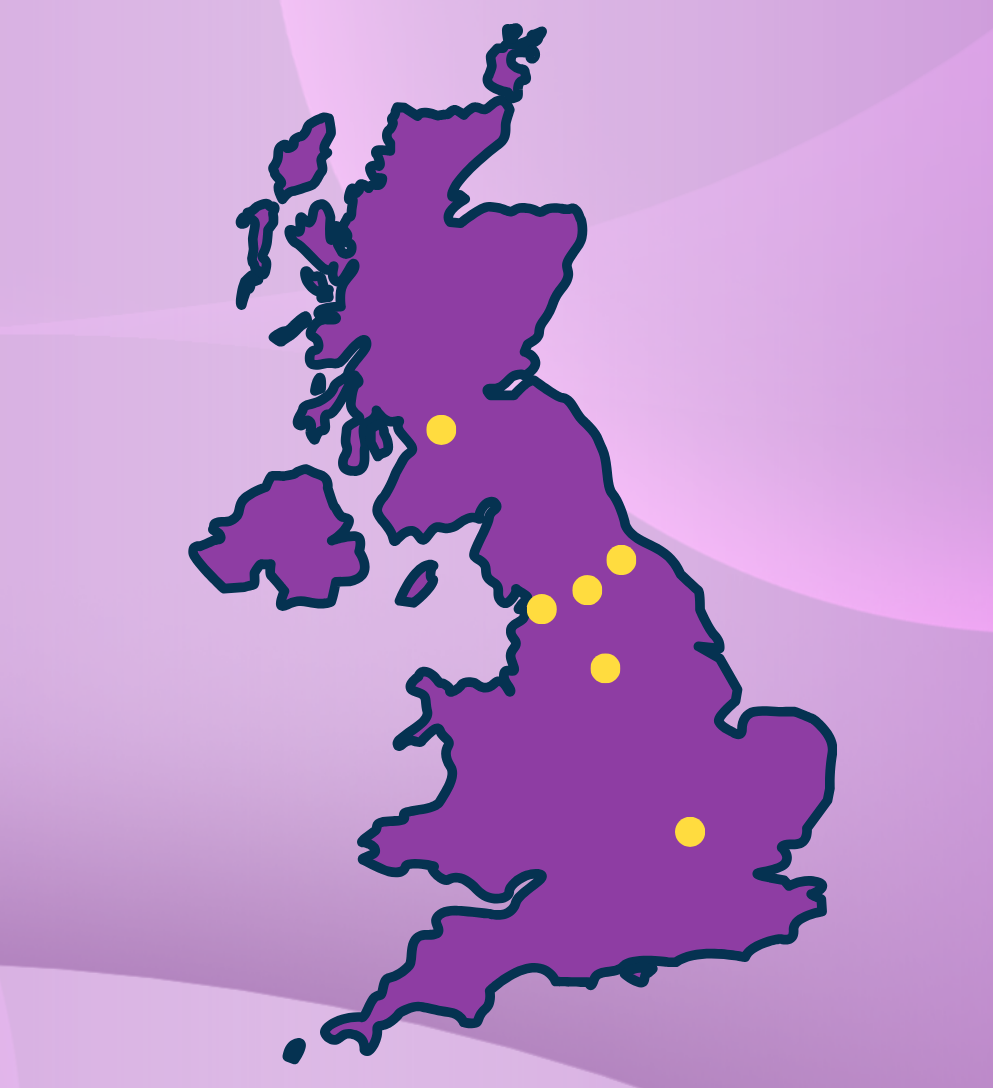Contact & Support
Here to help, ready to support

Contact Us
Our team is happy to answer any questions. Complete the form and we’ll be in touch as soon as possible.
Essential Contact Information
Urgent enquiries: 03300 553327
General enquiries
+44 (0)1772 237822
Head Office
228 Garstang Road
Fulwood, Preston
Lancashire
PR2 9QB
United Kingdom
+44 (0)1772 237822
Panthera BioPartners Limited is a company registered in England and Wales (company number 11709548). Registered office 228 Garstang Road, Fulwood, Preston, England PR2 9QB. VAT number 507600615.


Need help finding a trial nearby? Choose a location nearest you.


You have questions? We have answers.
-
A clinical trial is a medical research study involving volunteers to explore new ways to prevent, detect, or treat diseases, illnesses or ailments. These studies assess investigational treatments, which may include new drugs, combinations of drugs, new delivery methods for existing medications, or medical devices. Before approval, these treatments undergo rigorous testing to ensure they are safe and effective. Each trial follows a detailed protocol outlining the study’s purpose, participant criteria, procedures, and duration. A principal investigator, often a medical doctor, leads the research team, which includes various healthcare professionals. Participation is entirely voluntary, and diverse involvement is crucial to understand different responses to the investigational product.
-
Clinical trials encompass various study types, including:
- Prevention Trials: Explore methods to prevent diseases in individuals who have not had them or to prevent recurrence.
- Treatment Trials: Test new treatments, drug combinations, or approaches to therapy.
- Diagnostic Trials: Seek better tests or procedures for diagnosing specific conditions.
- Screening Trials: Evaluate ways to detect diseases or health conditions.
- Quality of Life Trials: Aim to improve comfort and life quality for individuals with chronic illnesses.
Many trials compare a new product or therapy to existing treatments or placebos to determine effectiveness. Potential participants are informed beforehand if placebos are part of the study design.
-
Participating in a clinical trial offers several potential benefits:
- Access to New Treatments: You may receive investigational therapies not yet available to the public, potentially improving your health condition.
- Contribute to Medical Research: Your involvement aids in understanding how treatments work across different populations, helping to develop better therapies for future patients.
- Comprehensive Care: Participants receive close monitoring and additional healthcare assessments related to the study.
- Voluntary Participation: You can withdraw from the study at any time without any obligation.
Each study has specific eligibility criteria, so not everyone who applies will be accepted.
-
No, there is no cost to take part in a clinical trial. All study-related visits, tests, and procedures are provided free of charge.
If you qualify for a study, you may also receive compensation for your time and travel. The details of any compensation, as well as any reasonable expenses that may not be covered by the study, will be explained during the informed consent process. Our team will ensure you have all the information you need before deciding to take part.
-
Participation typically involves several stages:
- Pre-Screening: Researchers identify potential participants through databases, advertisements, or health screenings and conduct brief interviews to assess initial eligibility.
- Informed Consent: If you are a potential candidate, you’ll meet with the research team to discuss the study in detail. You’ll receive an informed consent document outlining the study’s purpose, procedures, risks, and benefits. Signing this document indicates your voluntary agreement to participate.
- Screening Visit: After consent, you’ll undergo assessments such as medical history reviews, physical exams, and laboratory tests to confirm eligibility based on the study’s criteria.
- Study Visits (Treatment Visits): Eligible participants attend scheduled visits to receive the investigational product or control, with ongoing monitoring and assessments as per the study protocol.
- End of Study Visit: Upon completing the treatment phase, final evaluations are conducted to gather data on the investigational product’s effects.
- Follow-Up Safety Visit: Some studies require additional visits after treatment concludes to monitor for any lasting effects or side effects.
-
Yes, your privacy is our priority. Any personal health information (PHI) you share with the clinical research team is kept strictly confidential and will not be shared without your permission, except when required by law.
If you choose to submit your details through our website, with your consent, your information will be securely stored in our clinical research database for potential participation in current and future studies. You can request to have your details removed at any time.
Similarly, if you speak with one of our research specialists over the phone, any information you provide will be recorded in the same secure database. This is entirely voluntary, and you can request its removal at any point. Your confidentiality and peace of mind are important to us.
-
The length and number of study visits depend on the specific trial. Typically, visits last at least 30 minutes, but some may take a few hours depending on the procedures involved.
Your first visit—known as the screening visit—is usually the longest. This is because it includes the informed consent process, a review of your medical history, collection of lab samples, and study-related assessments or questionnaires.
Before you decide to take part, we’ll provide clear details on how long each visit is expected to take, how often you’ll need to attend, and the overall duration of the study. Your time is valuable, and we aim to make each visit as smooth and efficient as possible.
-
Clinical trials progress through several phases, each designed to answer specific research questions:
- Phase 1: Involves a small group (20-80 participants), often healthy volunteers or patients with advanced diseases. The focus is on evaluating safety, identifying side effects, determining safe dosage ranges, and understanding how the body processes the investigational product. This phase typically lasts several months, with about 70% of studies advancing to Phase 2.
- Phase 2: Enrols 100-300 participants with the condition under study to further assess safety and effectiveness. These trials may be randomised and controlled, comparing the investigational product to standard treatments or placebos. Blinding is often used to prevent bias. Phase 2 studies usually take up to two years, with approximately 33% progressing to Phase 3.
- Phase 3: Includes larger groups (thousands of participants) to confirm effectiveness, monitor side effects, and compare the investigational product to standard treatments. These randomised and blinded trials can last from one to four years, with 25-30% successfully leading to regulatory approval submissions.
- Phase 4: Conducted after regulatory approval, these post-marketing studies gather additional information on risks, benefits, and optimal use in various populations over extended periods. Findings can influence whether a product remains on the market or if usage guidelines need adjustments.